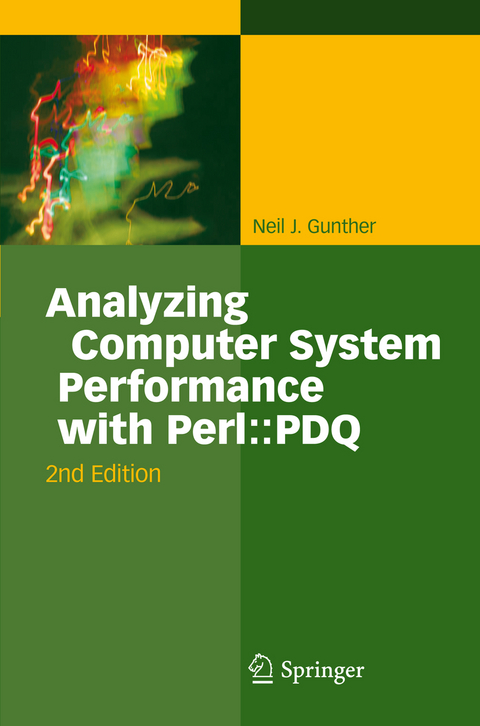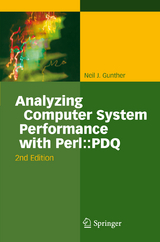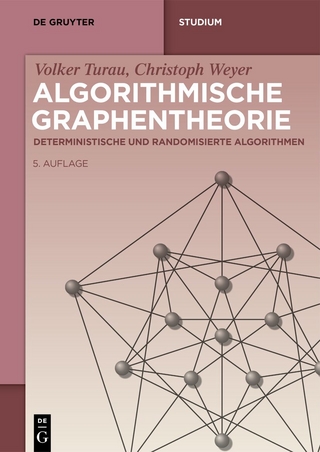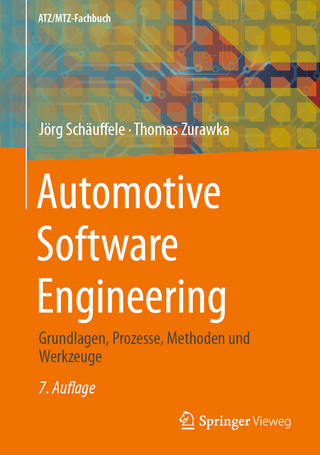Analyzing Computer System Performance with Perl::PDQ
Springer Berlin (Verlag)
978-3-642-22582-6 (ISBN)
To solve performance problems in modern computing infrastructures, often comprising thousands of servers running hundreds of applications, spanning multiple tiers, you need tools that go beyond mere reporting. You need tools that enable performance analysis of application workflow across the entire enterprise. That's what PDQ (Pretty Damn Quick) provides. PDQ is an open-source performance analyzer based on the paradigm of queues. Queues are ubiquitous in every computing environment as buffers, and since any application architecture can be represented as a circuit of queueing delays, PDQ is a natural fit for analyzing system performance.
Building on the success of the first edition, this considerably expanded second edition now comprises four parts. Part I contains the foundational concepts, as well as a new first chapter that explains the central role of queues in successful performance analysis. Part II provides the basics of queueing theory in a highly intelligible style for the non-mathematician; little more than high-school algebra being required. Part III presents many practical examples of how PDQ can be applied. The PDQ manual has been relegated to an appendix in Part IV, along with solutions to the exercises contained in each chapter.
Throughout, the Perl code listings have been newly formatted to improve readability. The PDQ code and updates to the PDQ manual are available from the author's web site at www.perfdynamics.comNeil Gunther, M.Sc., Ph.D. is a leading industry computer performance consultant who founded Performance Dynamics Company (www.perfdynamics.com) in 1994. Prior to that, Dr. Gunther held research and management positions at San Jose State University, JPL/NASA (Voyager and Galileo spacecraft), Xerox PARC research center and Pyramid/Siemens Technology. His performance and capacity planning classes have been presented at such organizations as Boeing, Fedex, Motorola, Stanford University, and Sun Microsystems. Dr. Gunther is the author of over a hundred papers on computer performance topics, including "HIT-AND-RUN TACTICS ENABLE GUERRILLA CAPACITY PLANNING," published recently in IEEE IT Professional magazine. He has also written the book THE PRACTICAL PERFORMANCE ANALYST (iUniverse.com 2000). In 1996 he was awarded Best Technical Paper at CMG, and in 1997 was nominated for the A.A. Michelson Award. Dr. Gunther is a member of the AMS, ACM, CMG, IEEE, SAGE-AU, SIGMETRICS and USENIX.
Part I Preliminary Concepts.- Why Queues Rule Performance Analysis.- Measurement Tools and Techniques.- Time - The Zeroth Performance Metric.- Part II Basic Queueing Theory for PDQ.- Getting the Jump on Queueing.- Queueing Systems for Computer Systems.- Linux Load Average.- Performance Bounds and Log Jams.- Part III Practical Application of PDQ.- Pretty Damn Quick|A Slow Introduction.- Multicomputer Analysis with PDQ.- How to Scale an Elephant with PDQ.- Client/Server Analysis with PDQ.- Web Application Analysis with PDQ.- Virtual Machine Analysis with PDQ.- Part IV Appendices.- Thanks for No Memories.- Compendium of Queueing Equations.- Units and Abbreviations.- Perl PDQ Manual.- Solutions to Selected Exercises.
From the reviews
"The literature of computer performance analysis is generally composed of two groups: heavy theoretical treatises and performance cookbooks. [...] Surprisingly, this book is exceptionally well balanced between theory and practice [...] . I strongly recommend this book, both for the novice practitioner and for the experienced performance analyst. Both can extract a vast array of benefits, ranging from understanding the theoretical concepts of performance modeling, to building for themselves a powerful modeling tool [...] ." Jair Merlo, Computing Reviews, May 2005
From the reviews of the second edition:
"Besides its case studies on applying queueing theory to the analysis of computer performance, this book on queueing circuits also includes a quick user guide to Perl Pretty Damn Quick (PDQ), a reference manual, and numerous examples. ... The book is written to be a field manual for enlightened practitioners of performance analysis, or possibly a school textbook. ... It is a laudable achievement to make performance analysis theoretical foundations available to anyone who is interested and can master high-school algebra." (A. Squassabia, ACM Computing Reviews, December, 2011)
From the reviews "The literature of computer performance analysis is generally composed of two groups: heavy theoretical treatises and performance cookbooks. […] Surprisingly, this book is exceptionally well balanced between theory and practice […] . I strongly recommend this book, both for the novice practitioner and for the experienced performance analyst. Both can extract a vast array of benefits, ranging from understanding the theoretical concepts of performance modeling, to building for themselves a powerful modeling tool […] ." Jair Merlo, Computing Reviews, May 2005From the reviews of the second edition:“Besides its case studies on applying queueing theory to the analysis of computer performance, this book on queueing circuits also includes a quick user guide to Perl Pretty Damn Quick (PDQ), a reference manual, and numerous examples. … The book is written to be a field manual for enlightened practitioners of performance analysis, or possibly a school textbook. … It is a laudable achievement to make performance analysis theoretical foundations available to anyone who is interested and can master high-school algebra.” (A. Squassabia, ACM Computing Reviews, December, 2011)
| Erscheint lt. Verlag | 30.7.2011 |
|---|---|
| Zusatzinfo | XXVIII, 474 p. |
| Verlagsort | Berlin |
| Sprache | englisch |
| Maße | 155 x 235 mm |
| Gewicht | 885 g |
| Themenwelt | Mathematik / Informatik ► Informatik ► Software Entwicklung |
| Schlagworte | Load Management • MTBF • Performance Metrics • Perl • Pretty Damn Quick • System Benchmarking • system performance • System Reliabilty • System Scalability • System Throughput |
| ISBN-10 | 3-642-22582-9 / 3642225829 |
| ISBN-13 | 978-3-642-22582-6 / 9783642225826 |
| Zustand | Neuware |
| Haben Sie eine Frage zum Produkt? |
aus dem Bereich




